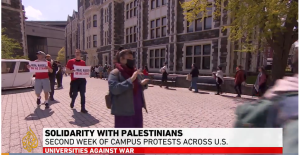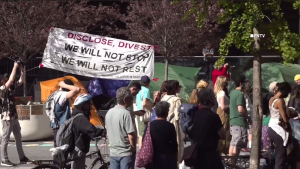Maryam Alwan figured the worst was over after New York City police in riot gear arrested her and other protesters on the Columbia University campus, loaded them onto buses and held them in custody for hours.
But the next evening, the college junior received an email from the university. Alwan and other students were being suspended after their arrests at the “ Gaza Solidarity Encampment,” a tactic colleges across the country have deployed to calm growing campus protests against the Israel-Hamas war.
The students’ plight has become a central part of protests, with students and a growing number of faculty demanding their amnesty. At issue is whether universities and law enforcement will clear the charges and withhold other consequences, or whether the suspensions and legal records will follow students into their adult lives.
Terms of the suspensions vary from campus to campus. At Columbia and its affiliated Barnard College for women, Alwan and dozens more were arrested April 18 and promptly barred from campus and classes, unable to attend in-person or virtually, and banned from dining halls.

Questions about their academic futures remain. Will they be allowed to take final exams? What about financial aid? Graduation? Columbia says outcomes will be decided at disciplinary hearings, but Alwan says she has not been given a date.
“This feels very dystopian,” said Alwan, a comparative literature and society major.

